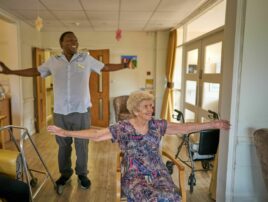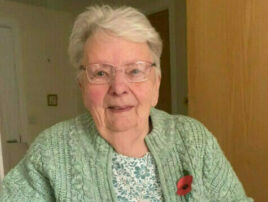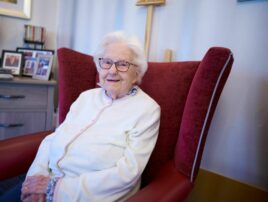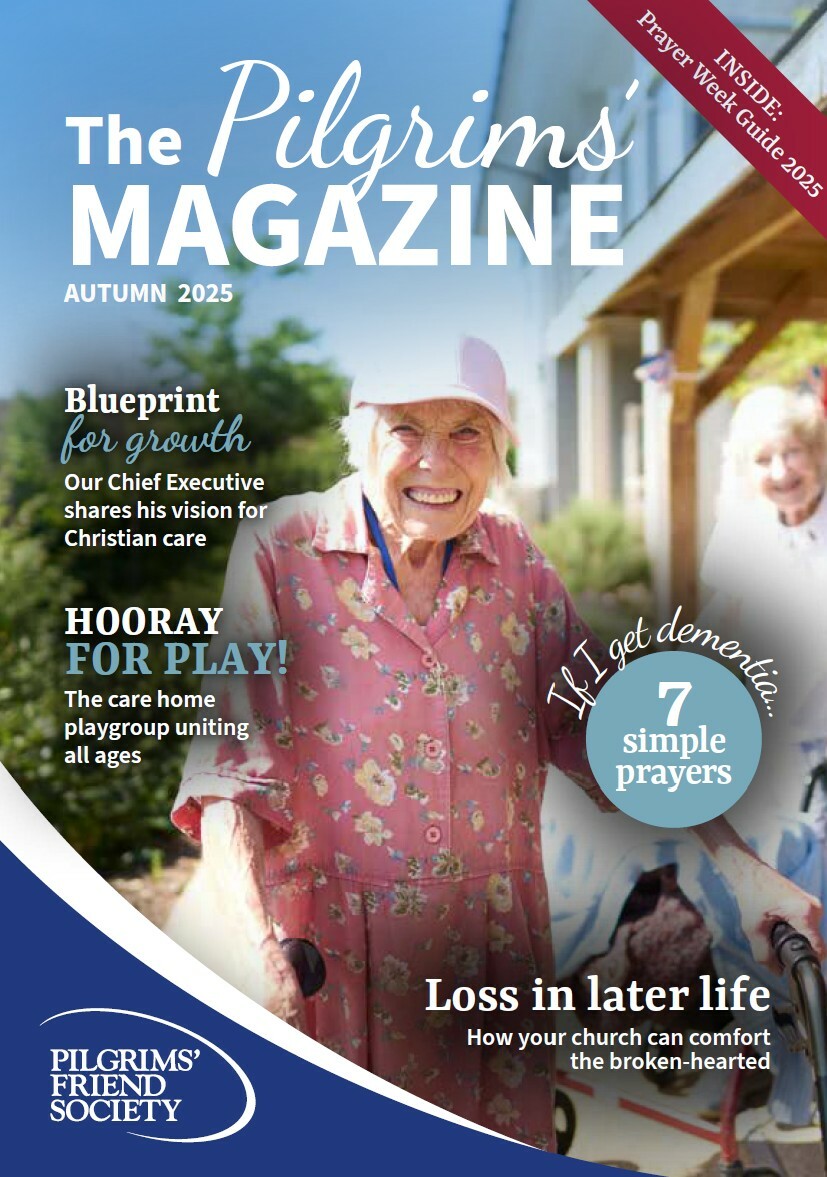
Tuesday 19th August 2025
Life after death
Alexandra Huggins, Chief Executive of our partner charity Faith in Later Life, explores navigating bereavement in later life

Bereavement at any age is a heartbreaking experience and can profoundly impact our onward journey through life. For many older people the loss of a loved one is often magnified by the unique circumstances that can accompany later life.
Ever decreasing circles
I was recently sitting next to an older couple at a dinner party and as we talked about their daily lives, they remarked on how the number of funerals they attend has been ramping up over the last few years, and how their circle of friends has grown smaller as a result.
The longer we live on this earth, the more losses we’re likely to experience. It’s one thing to know this as a fact, but it’s a real
challenge to navigate these multiple bereavements in practice.
Grief varies from person to person, and how a death impacts us very much depends on the nature and depth of the relationship. The loss
of a spouse or partner dearly loved over decades, perhaps since being teenagers, can be overwhelming. The sense of loneliness after losing a 24/7 companion, the loss of identity as ‘we’ becomes ‘I’, the loss of shared routines and responsibilities, or perhaps the sudden loss of a long-held caring role, can have a tremendous impact on the surviving person’s daily life and wellbeing.
But bereavement in later life isn’t limited to losing a spouse or life partner. Losing siblings and dear friends is hard to bear as we mourn our previously shared history, lose our favourite ‘memory keepers’, and simply miss doing life with them.
And losing an adult child or grandchild is painful and extremely complex as parents and grandparents grapple with unbearable heartbreak, the disruption in the natural order of life, and the mourning of lost dreams.
Nothing new
When a younger person loses a loved one, there can come, over time, a hopeful sense that a new chapter could be ahead of them– good times yet to come; new places to explore, career changes, and perhaps even new people to love – all of which can help a person recover something from their loss and change their state of loneliness.
Although this is all possible in later life, and we hear wonderful stories of older people embracing a new chapter, depending on the bereaved person’s circumstances, the reality is that opportunities for new and wanted beginnings can be in short supply for many.
Instead, some older people struggle to do things on their own for the first time in years; like using public transport, going on holidays, visiting busy places, talking to new people, or starting new things. And as a result, the bereaved person is only left with the loss, the loneliness, and nothing new to look forward to.
What churches can do
Following the death of his wife Irene, John struggled to adjust to life without her. He missed her company, her wisdom, and her
wonderful cooking! His church was kind and supportive, listening to John’s stories about Irene and their life together, inviting him for meals, and later teaching him how to prepare simple dishes. The worship group drew him back into playing the piano after he’d previously retired, and over time John ‘found his feet’ again.
Church families are well placed and biblically motivated to walk alongside people through bereavement in this way; to ‘comfort with the comfort we’ve been given’, to listen well, to offer practical support, to help people remember with joy, and to gently point them to the hope we have in Jesus. Here are a few ideas to get you started:
For individuals
- Follow up regularly and be committed for the long term
- Don't offer platitudes or aim for perfection– listen and be yourself
- Offer to be with them for any difficult situations e.g. arranging the funeral, sorting out belongings, going to a social event for the first time
- Don’t assume they know how to cook, pay bills, do the washing, or set the heating – ask them what help they need
- Include them in what they may have previously done with the person they’ve lost – meals out, walks, outings, cinema, and shopping trips.
- Mark anniversaries and birthdays with a card, a call, or preferably a visit or offer of an outing
- Pray for them
To receive your copy of the magazine FREE four times a year, sign up now.
For the whole community
Become bereavement friendly with the help of charities like AtALoss, The Bereavement Journey, and Care for the Family
• Set up a bereavement group or café
• Weekends can be difficult for older people whether bereaved or not – host regular low-key events and have a phone buddy system for people who can’t come out
• Make space for remembrance and thanksgiving by scheduling an
annual bereavement service for the whole community
Comfort from the Bible
Psalm 34:18 – “The Lord is close to the broken-hearted…”
Isaiah 46:4 – “Even to your old age and gray hairs I am He…”
Revelation 21:4 – “He will wipe every tear from their eyes…”
More on supporting older people from Faith in Later Life...

Five ways to help ease summer loneliness
Alex Huggins from Faith in Later Life shares five practical and compassionate ways to help ease loneliness during the summer months
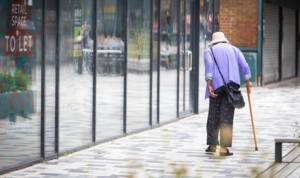
Reaching the lonely
Alex Drew from our partner charity Faith in Later Life looks at what Christians can do to help combat loneliness in older age

Offline connection
Alex Drew from our partner charity Faith in Later Life (FiLL) explores how to reach older people who aren’t online

